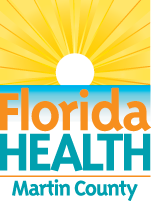It's a New Day in Public Health.
The Florida Department of Health works to protect, promote, and improve the health of all people in Florida through integrated state, county, and community efforts.
Post Hurricane Health and Safety Information
September 12, 2017
Staff from the Florida Department of Health in Martin County will sample the water today, September 12, at Martin County beaches to ensure that enteric bacteria is not present and the water is safe for swimming.
Sampling is taking place at Hobe Sound Beach, Hobe Sound Wildlife Refuge, Bathtub Beach, Stuart Beach and Jensen Beach. Preliminary test results are expected on Thursday.
Always follow the advice of lifeguards. The beach conditions hotline number is 772-320-3112.
Enteric bacteria inhabit the intestinal tract of humans and animals and their presence in recreational waters is an indication of fecal pollution that may be present as a result of the recent storm event. Potential health risks for those who ingest or come in contact with the water include upset stomach, diarrhea, eye irritation and skin rashes.
Sample results can be viewed here.
CARBON MONOXIDE DANGERS
-Generator safety precautions can help prevent poisoning-
For any residents still without electricity, the Florida Department of Health is urging the public to avoid carbon monoxide (CO) exposure by taking precautions with gas-powered appliances such as generators and charcoal or gas grills.
Carbon monoxide is an invisible, odorless, tasteless gas, and is highly poisonous. Depending on the level of exposure, CO may cause fatigue, weakness, chest pains for those with heart disease, shortness of breath upon exertion, nausea, vomiting, headaches, confusion, lack of coordination, impaired vision, loss of consciousness, and in severe cases, death.
DOH recommends the following precautions to help prevent carbon monoxide poisoning:
- Do not burn charcoal or gas grills inside a house, garage, vehicle, tent or fireplace.
- NEVER use a generator indoors, including in homes, garages, basements, crawl spaces, and other enclosed or partially enclosed areas, even with ventilation. Opening doors and windows or using fans will not prevent CO build-up in the home.
- ALWAYS locate the unit outdoors on a dry surface, away from doors, windows, vents, and air conditioning equipment that could allow CO to come indoors. Follow the instructions that come with your generator.
- Install battery-operated CO alarms or plug-in CO alarms with battery back-up in your home, according to the manufacturer’s installation instructions. The CO alarms should be certified to the requirements of the latest safety standards for CO alarms (UL 2034, IAS 6-96, or CSA 6.19.01).
- Test your CO alarms frequently and replace dead batteries.
- REMEMBER that you cannot see or smell CO and portable generators can produce high levels of CO very quickly.
- If you start to feel sick, dizzy, or weak while using a generator, get to fresh air RIGHT AWAY. DO NOT DELAY.
- If you have a poisoning emergency, call your nearest Florida Poison Information Center at 1-800-222-1222. If the victim has collapsed or is not breathing, call 911 immediately.
For Media Inquiries
@GoHealthyMartin
@HealthyFla





Connect with DOH